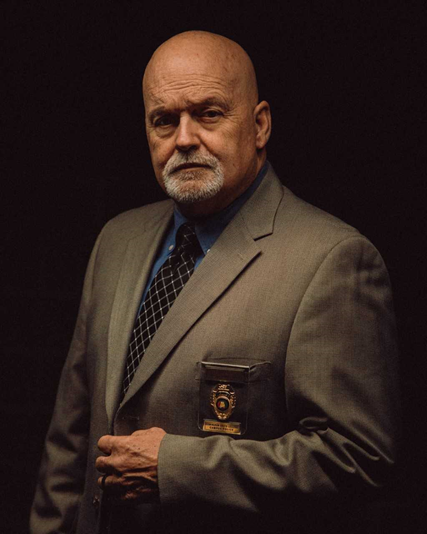10 Questions with Retiring Police Chief Randy Youngblood
10 Questions with Retiring Police Chief Randy Youngblood
After 37 years of serving the Hilltop community, Birmingham-Southern College Campus Police Chief Randy Youngblood—a Birmingham native—will retire his badge on March 28. He talked to us about his experiences and what’s ahead for him.
 How did you get started in law enforcement?
How did you get started in law enforcement?
I never wanted to be anything but a police officer. I began my career in the Jefferson County Sheriff's office.
What was your favorite part of the job?
Being in the role of a servant-leader.
What was the most challenging part?
The most challenging part of the job occurred within the last 10 to 15 years when active shooter events began happening across the country. We worked with FBI intelligence and a host of private organizations to analyze the threat on our campus, I was happy to find out that the threat has always been very low, comparatively speaking. The men and women that comprise the BSC Campus Police Department are highly trained to address most anything that law enforcement officers face, including a variety of catastrophic events.
What do you consider your biggest accomplishments?
- Worked with the Alabama State Legislature (along with Samford's police chief at the time) in the mid-90s on a law to allow certain private colleges, including BSC, to have police powers. The law passed.
- Remained cognizant of changes in society, crime patterns, the introduction of social media, etc. to stay on the cutting edge of campus law enforcement.
- Implemented a community policing philosophy for the CPD to remain close and approachable to students, faculty, and staff.
- Service/programming: Fish feeding during breaks; going near and far to assist students off campus; instituting a car-check service before students travel for various breaks; teaching CPR to campus groups; and teaching RAD (Rape Aggression Defense) classes.
- Administrator of the Clery Act (disclosing campus crime statistics) for the college since its inception in 1990.
What’s the weirdest thing you’ve come across on campus?
There have been several: The Bruno bear that wandered on campus, a naked man who climbed the Hilltop Parkway fence that we had to monitor and assist off campus, the wrecking ball that fell through the Norton Center (formerly Snavely Center) during its renovation, and having to open a can of soup for someone who lived on Greensboro Road.
What was your guiding philosophy of leadership?
My philosophy of leadership was a somewhat eclectic approach to ‘servant leadership’ with heavy influences from former BSC President Dr. Neal Berte, Vice President Lane Estes, and former Campus Police Chief Robert Love.
What advice do you have for parents sending their children off to college?
My experiences have shown me that parents must allow their children to grow up and to confront and solve their own problems when they can.
What is a trend in campus law enforcement that you were glad to see?
The trend in campus law enforcement that I feel has been most beneficial for the campuses they serve is the implementation of community policing. While there are many aspects of that philosophy, it is simply about making the police officer familiar with those they protect and to ensure that service to the public is an integral part of law enforcement.
The college has had a security organization in one form or other since its earliest days of existence. But the current product that serves BSC now was the brainchild of then-BSC President Dr. Neal Berte that yielded a far more professional and well-trained campus police department. He understood the importance of having a safe campus to allow students to enjoy their academic and social endeavors both on- and off-campus. His vision and intuitive abilities to see into the future in terms of a healthy college campus were, and are, remarkable. President Emeritus Gen. Charles Krulak was also responsible in large part for the safe campus that BSC represents.
What are you going to do in retirement?
I always feel that in another life I was a cowboy. As a child growing up in the late 50s and 60s, cowboys were always my heroes! As soon as I became old enough and was able to do so, I bought horses. I love to ride them and have been on many wonderful trips, including riding the Appalachian Trail in Tennessee and North Carolina. So a large part of my time will now be spent in the outdoors.
What will you miss the most about being police chief?
The greatest thing I will miss about being police chief is the campus community. I find my job thoroughly rewarding, but to be allowed to practice my craft at BSC, where I am so closely involved in preparing young people for life, has no equal.

